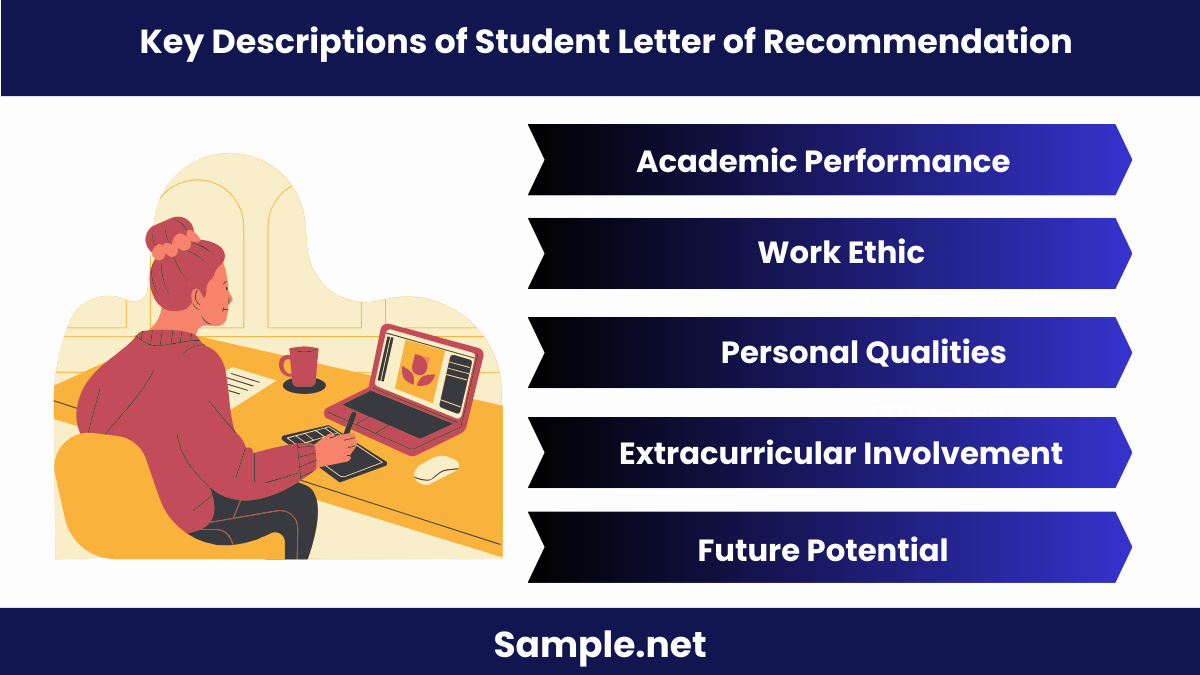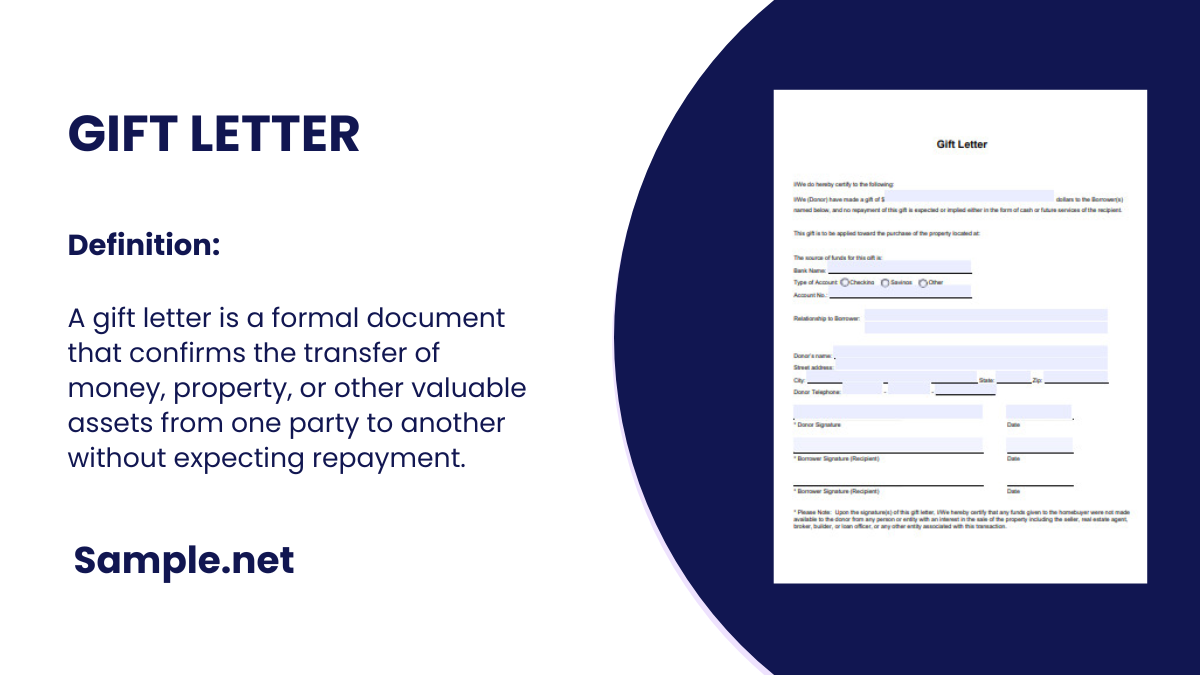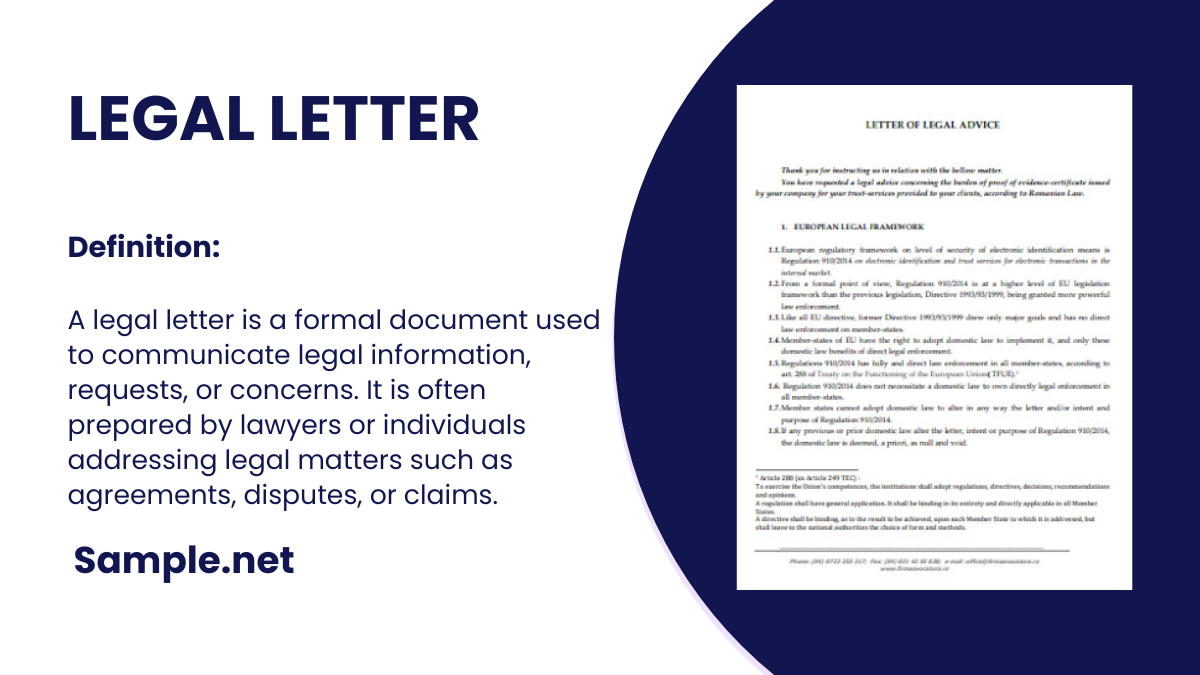A gift letter is a formal document that confirms the transfer of money, property, or other valuable assets from one party to another without expecting repayment. Often used in…
continue readingDownload Student Letter of Recommendation Bundle
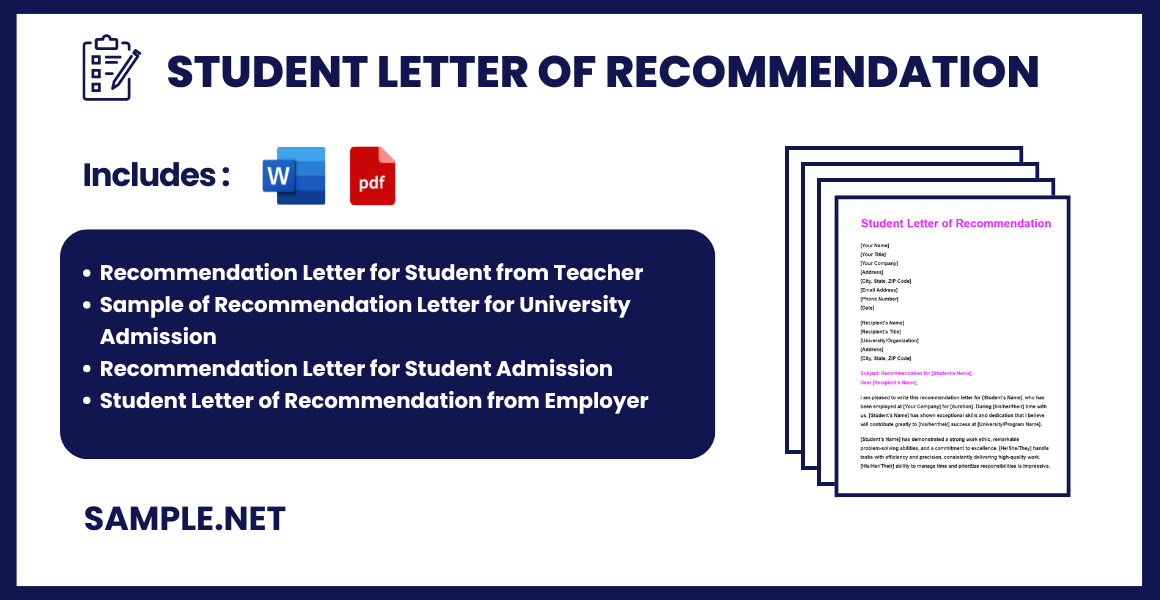
Student Letter of Recommendation Format
Header
- Your Name
- Your Title
- Your Institution
- Address
- City, State, ZIP Code
- Email Address
- Phone Number
- Date
Salutation
- Dear [Recipient’s Name],
Introduction
- Introduction of the Student: Name, the context of acquaintance, duration, and capacity.
- Purpose of the Letter: Clearly state that the purpose is to recommend the student.
Body
- Academic Performance: Discuss specific achievements, grades, and skills.
- Character and Personal Qualities: Highlight the student’s character traits, teamwork, leadership, and reliability.
- Extracurricular Activities: Mention involvement in extracurricular activities and any awards or recognitions.
Conclusion
- Summary of Recommendation: Reaffirm your support and recommendation.
- Contact Information: Provide your contact information for further inquiries.
- Signature:
Sincerely,
[Your Name]
Student Letter of Recommendation Samples
-
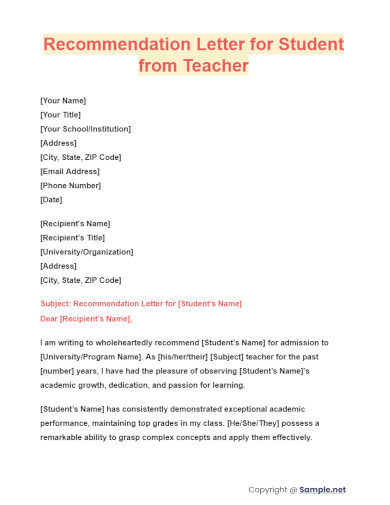
Recommendation Letter for Student from Teacher
download now -
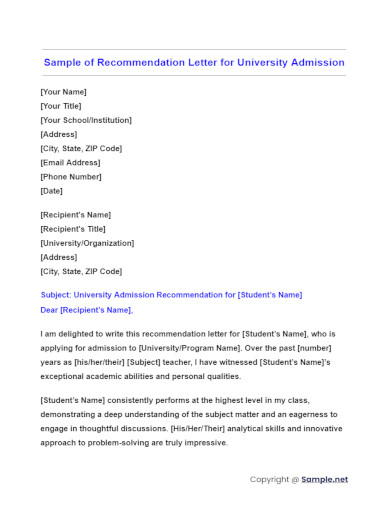
Sample of Recommendation Letter for University Admission
download now -
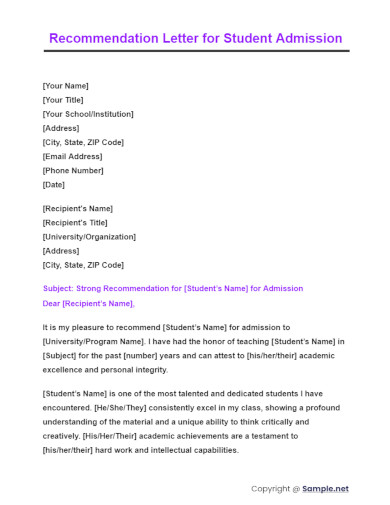
Recommendation Letter for Student Admission
download now -
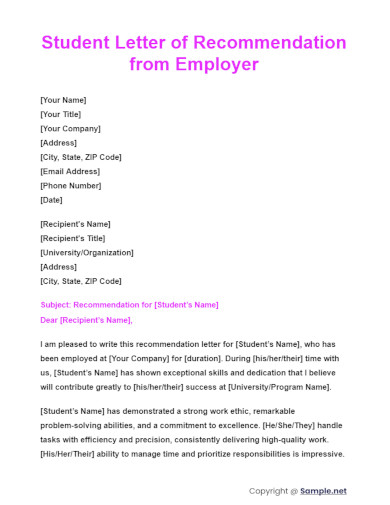
Student Letter of Recommendation Employer
download now -
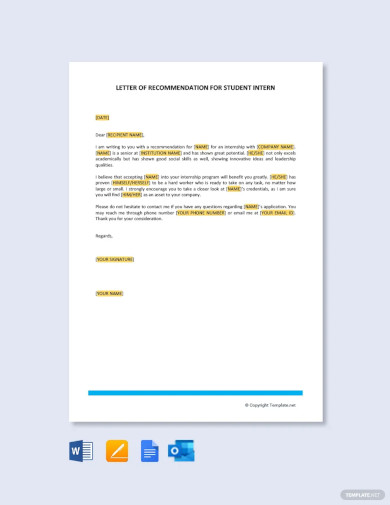
Letter of Recommendation for Student Intern Template
download now -
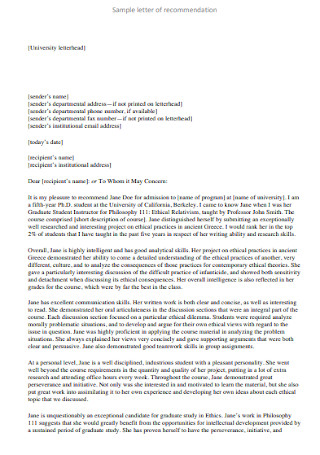
Elementary Student Letter of Recommendation Sample
download now -
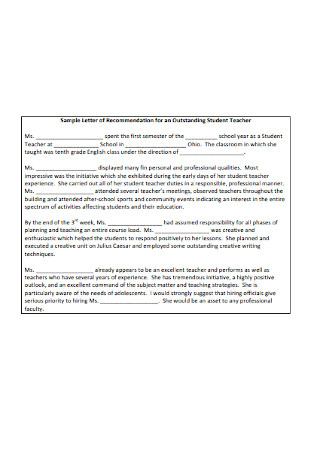
Sample Letter of Recommendation Friend Student Teacher
download now -
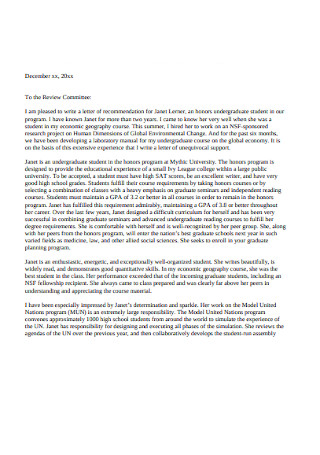
Student Graduate School Recommendation Letter
download now -
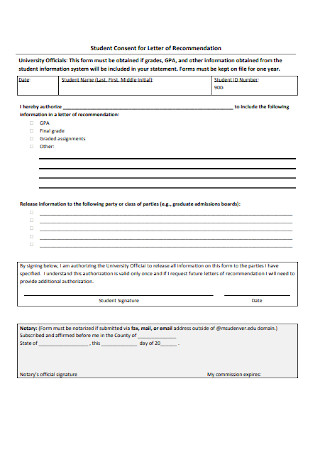
Professor Student Consent for Letter of Recommendation
download now -
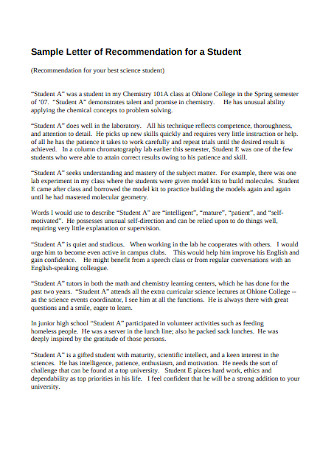
Sample Reference Letter of Recommendation for a Student
download now -
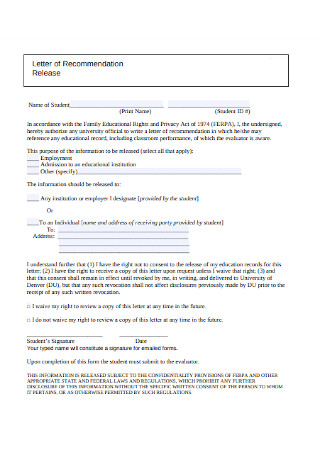
Basic Student Employment Recommendation Letter
download now -
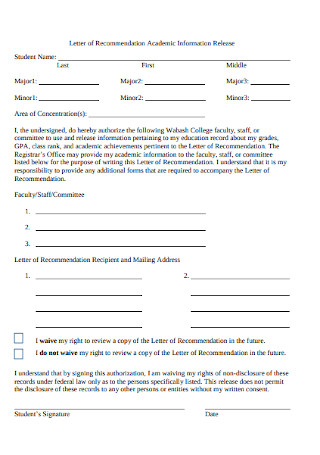
Undergraduate Student Letter of Recommendation
download now -
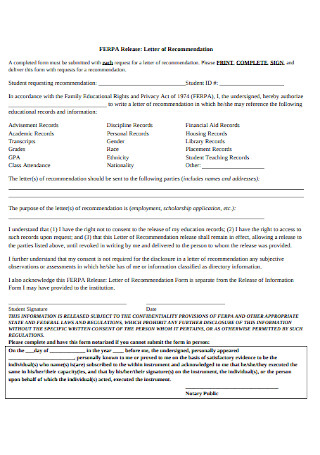
Student Character Release Letter of Recommendation
download now -
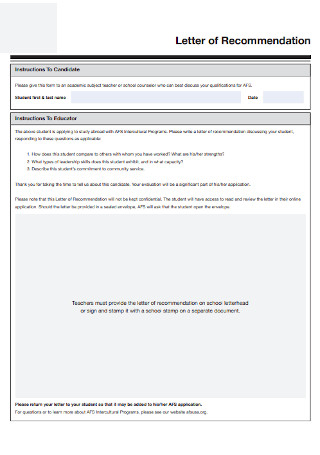
Simple General Student Letter of Recommendation
download now -
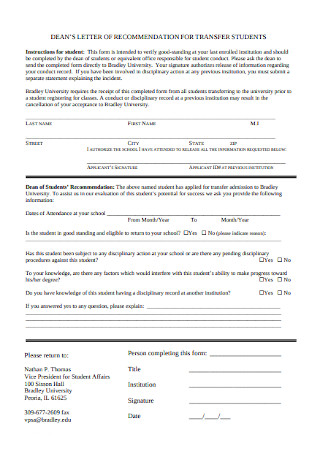
Letter of Recommendation Admission Students
download now -
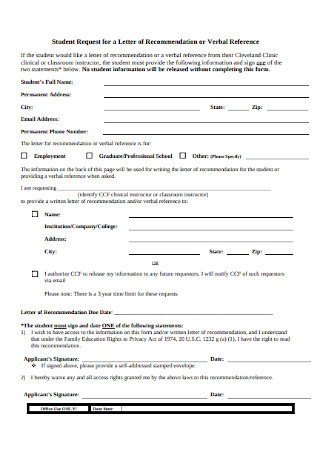
Student Request for a Letter of Recommendation
download now -
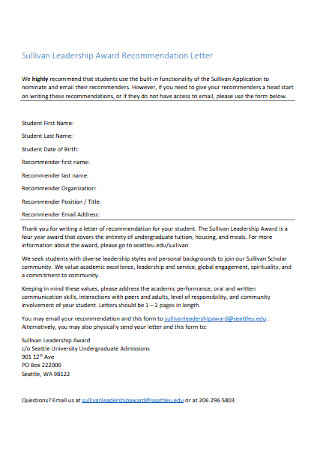
Student Leadership Recommendation Physical Therapy Letter
download now -
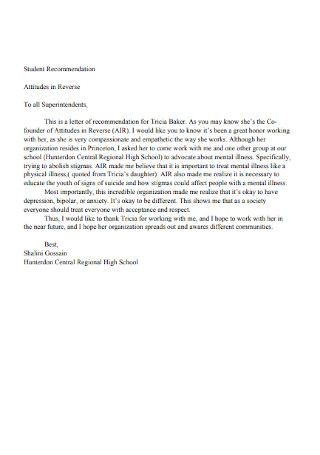
Architecture Student Recommendation Letter Sample
download now -
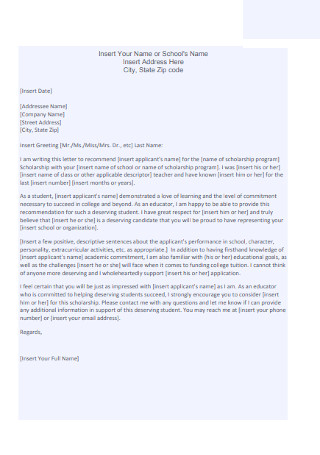
Student Masters Scholarship Recommendation Letter Sample
download now -
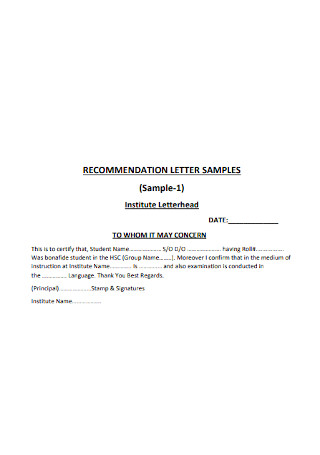
Sample Student Private School Letter of Recommendation
download now -
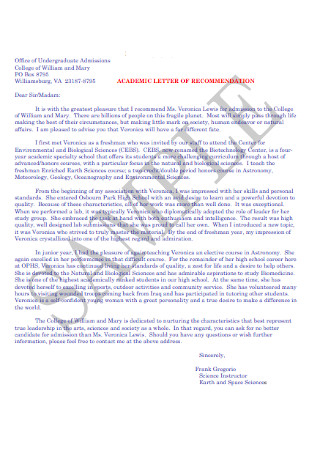
Student Math Recommendation Letter for College
download now -
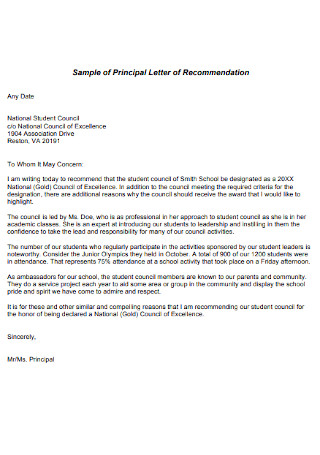
Kindergarten Student Council Recommendation Letter
download now -
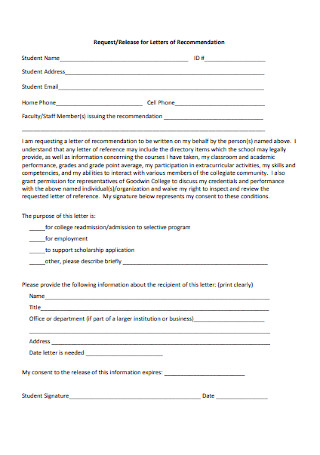
Student Request for a letter of Recommendation Sample
download now -
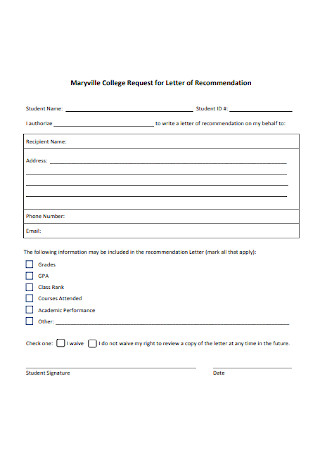
Sample Student Application Recommendation Letter for College
download now -
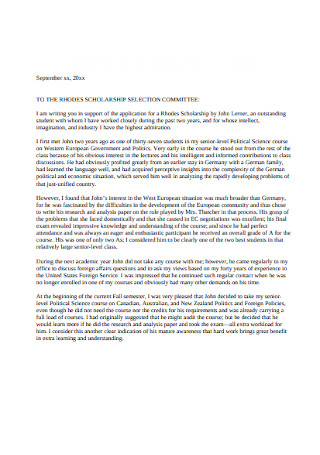
Business Student Scholarship Recommendation Letter
download now -
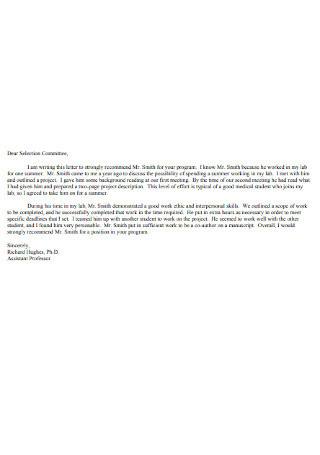
Medical Student Recommendation Letter
download now -
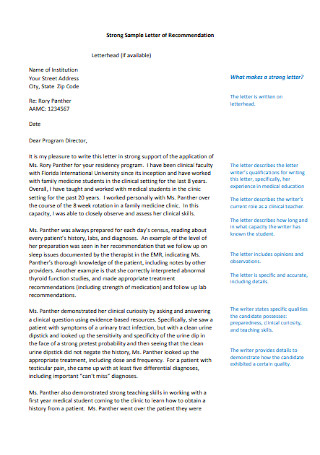
Medical Student Recommendation Letter Sample
download now -
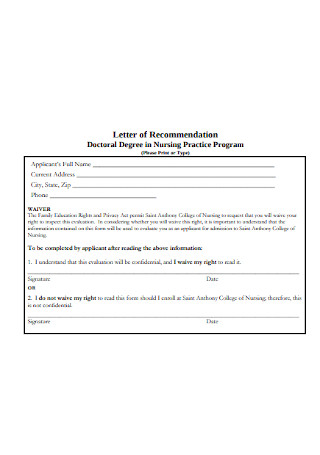
Nursing Student Letter of Recommendation
download now -
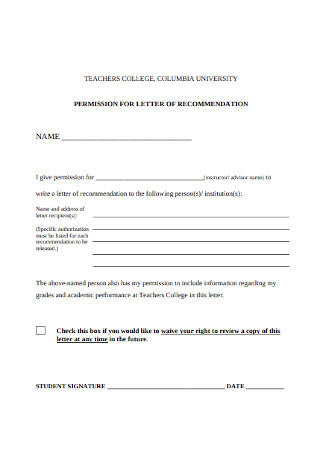
Student Letter of Recommendation for College
download now -
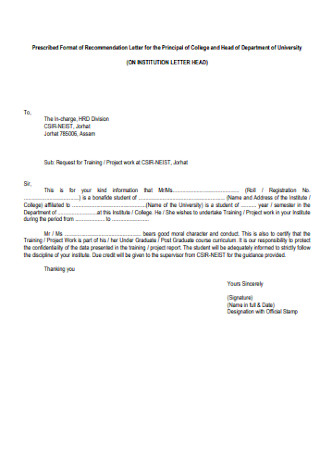
Student Recommendation Letter from Principal
download now -
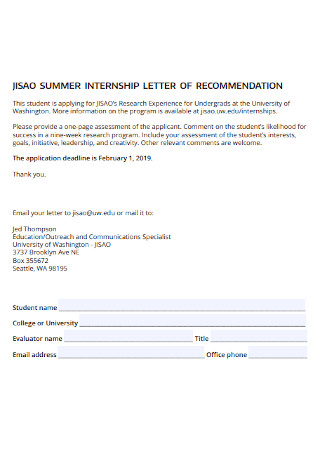
Student Recommendation Letter for Internship
download now -
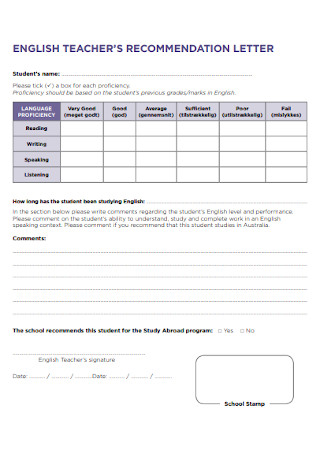
Student Recommendation Letter by Teacher
download now -
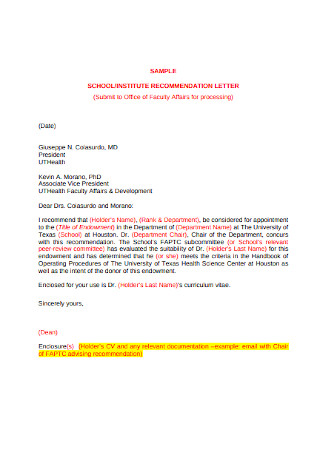
Sample Student Recommendation Letter for high School
download now -
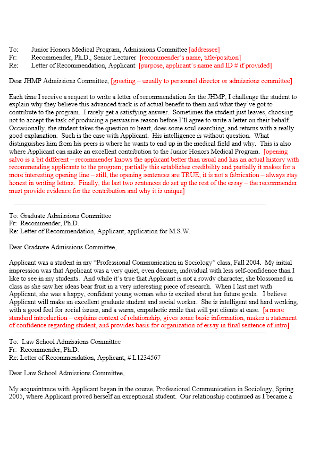
Simple Student Letter of Recommendation Letter
download now -
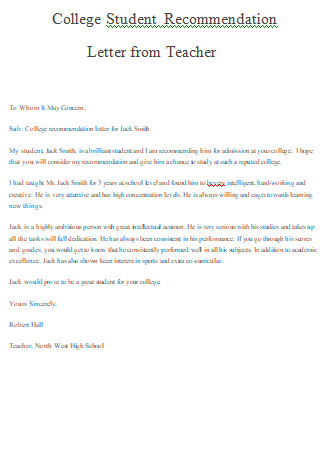
College Student Letter of Recommendation From Teacher
download now -
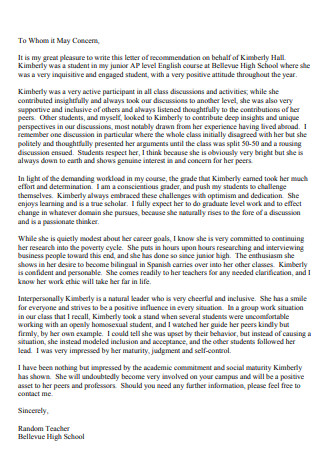
Middle School Student Letter Of Recommendation
download now -
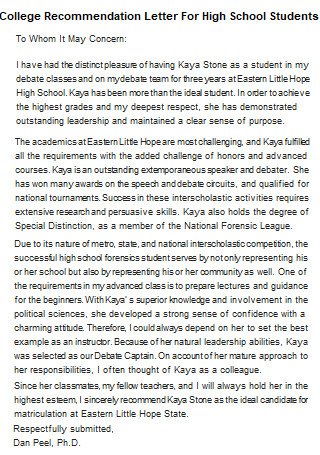
College Recommendation Letter for High School Students
download now -
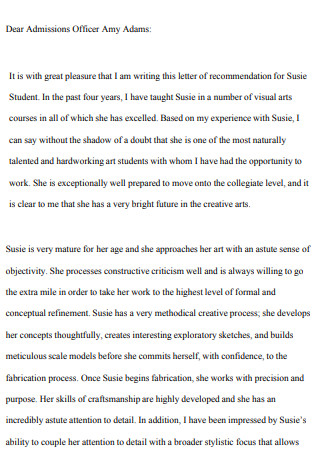
Student Going to College Letter Of Recommendation
download now -
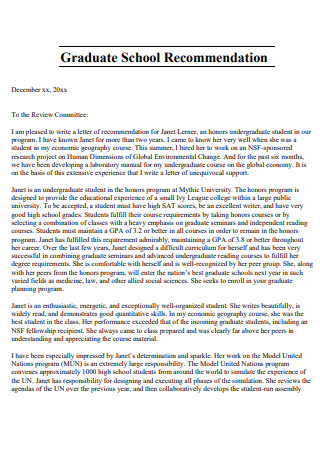
Graduate Student Letter Of Recommendation
download now -
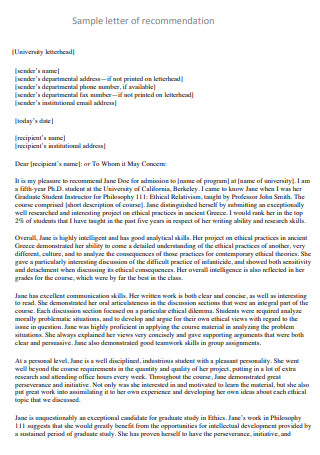
Recommendation Letter for University
download now -
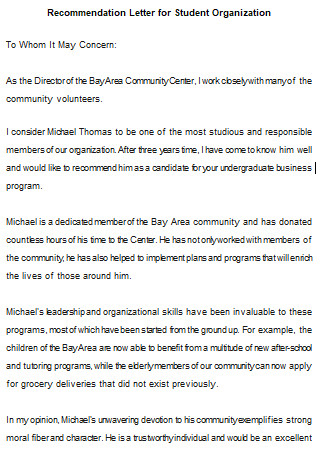
Student Organization Letter Of Recommendation
download now -
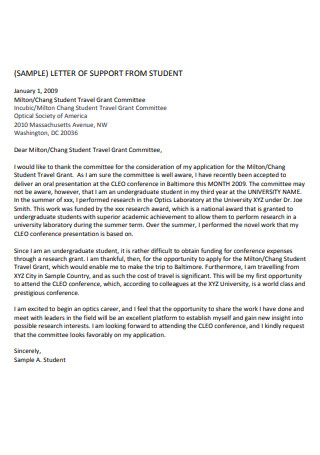
Student Conference Letter Of Recommendation
download now -
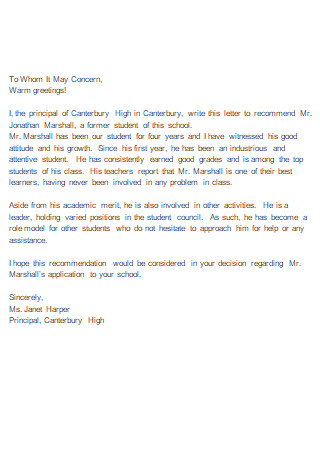
Free Letter of Recommendation For High School Student
download now -
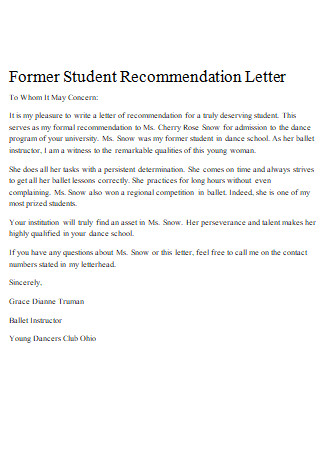
Former Student Letter Of Recommendation
download now -
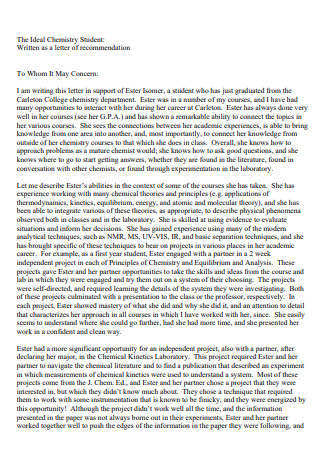
Senior Student Letter Of Recommendation
download now -
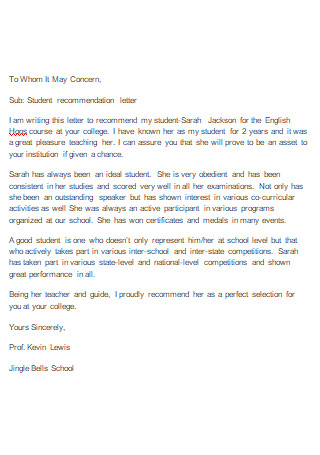
Student Teacher Letter Of Recommendation
download now -
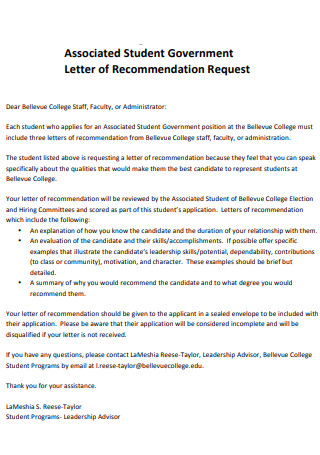
Associated Student Government Letter of Recommendation Request
download now -
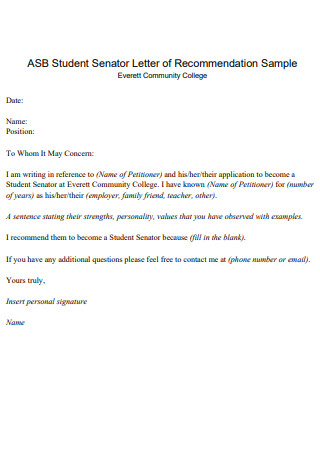
Student Senator Letter of Recommendation
download now -
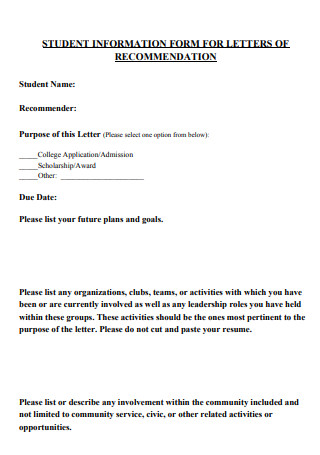
Student Information Form Letter of Recommendation
download now -
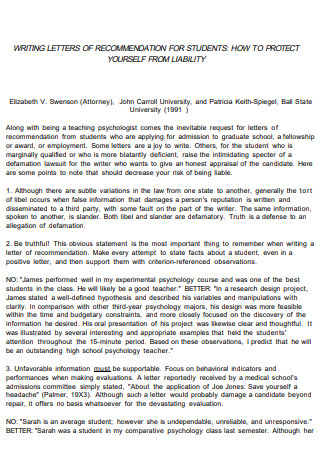
Letter of Recommendation for Students to Protect from Liabilities
download now -
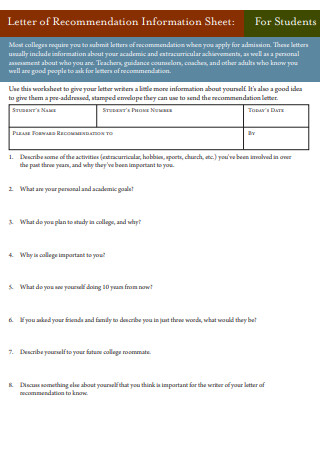
Student Letter of Recommendation Information Sheet
download now -
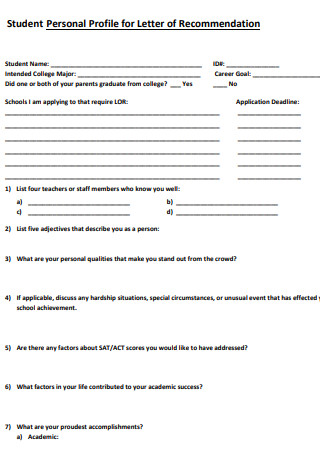
Student Personal Profile Letter of Recommendation
download now -
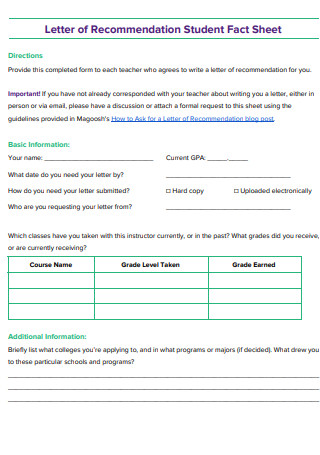
Student Fact Sheet Letter of Recommendation
download now -
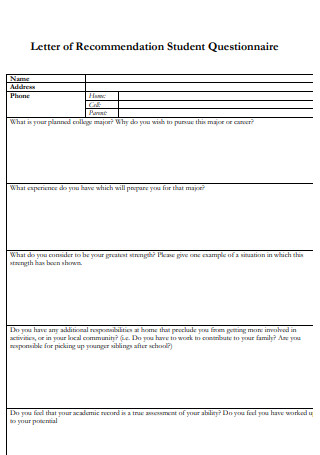
Student Questionnaire Letter of Recommendation
download now -
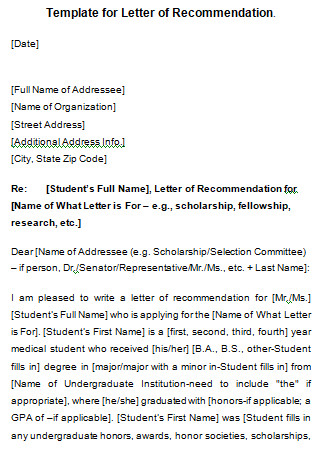
Student Letter Of Recommendation Example
download now -
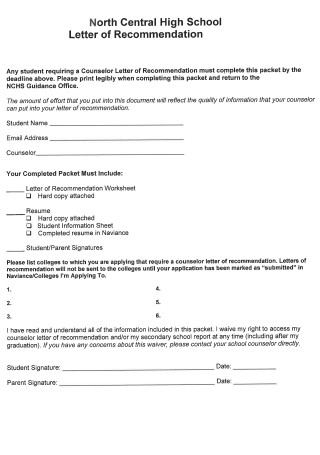
Student Counselor Letter of Recommendation
download now
What is Student Letter of Recommendation?
A Student Letter of Recommendation is a formal document written by a teacher, counselor, or employer that endorses a student’s skills, character, and achievements. It is used to support the student’s application for college admissions, scholarships, or employment opportunities, providing a personal and professional perspective on their qualifications and potential.
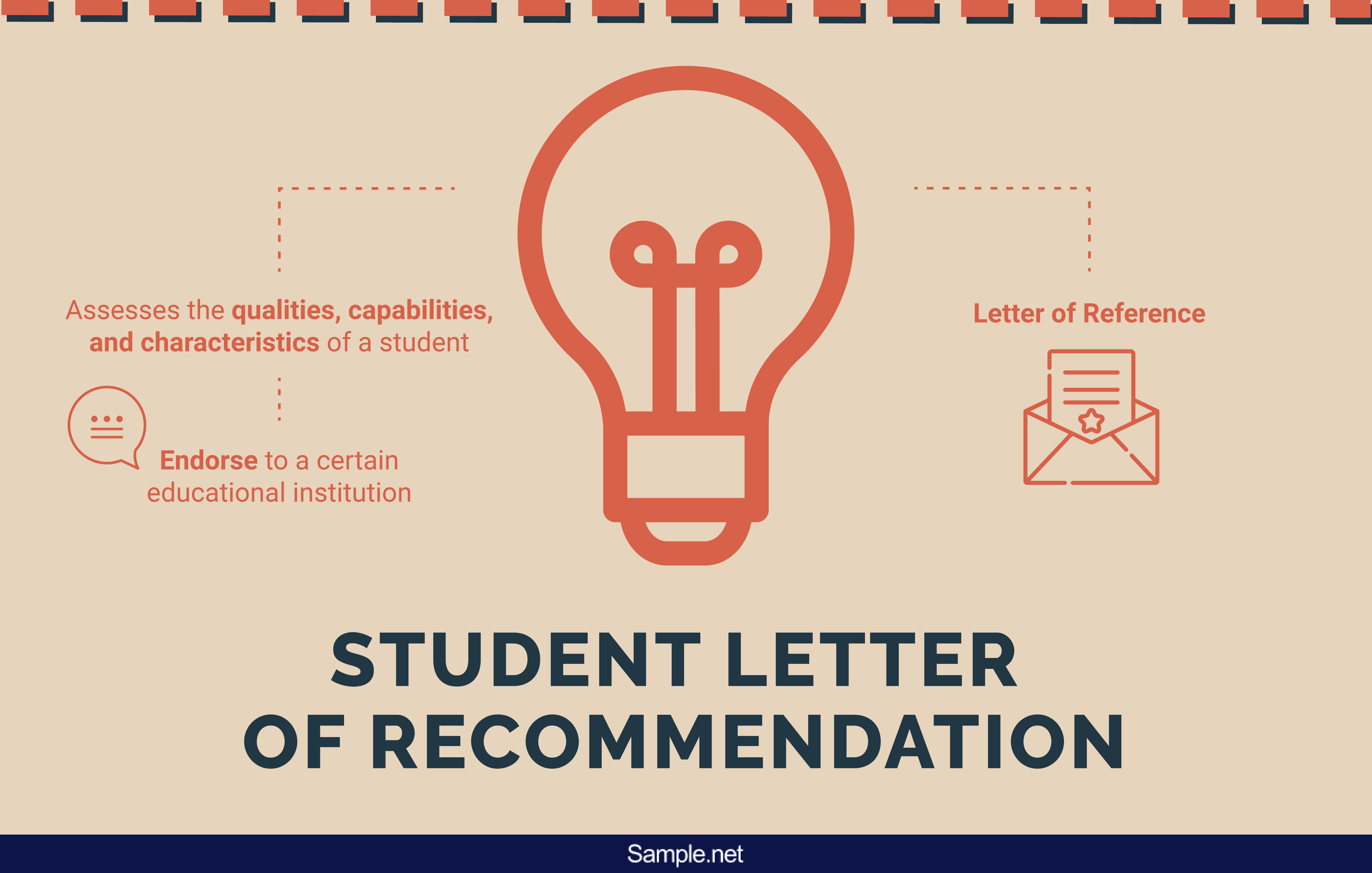
The Types of Letter of Recommendation
A formal letter of recommendation is not just meant for college admissions. As a matter of fact, there are at least three different types or variations that will come in handy at different points of one’s life. Given how likely it is for anybody at all to encounter all of them at some point, it is wise to familiarize with them sooner rather than later.
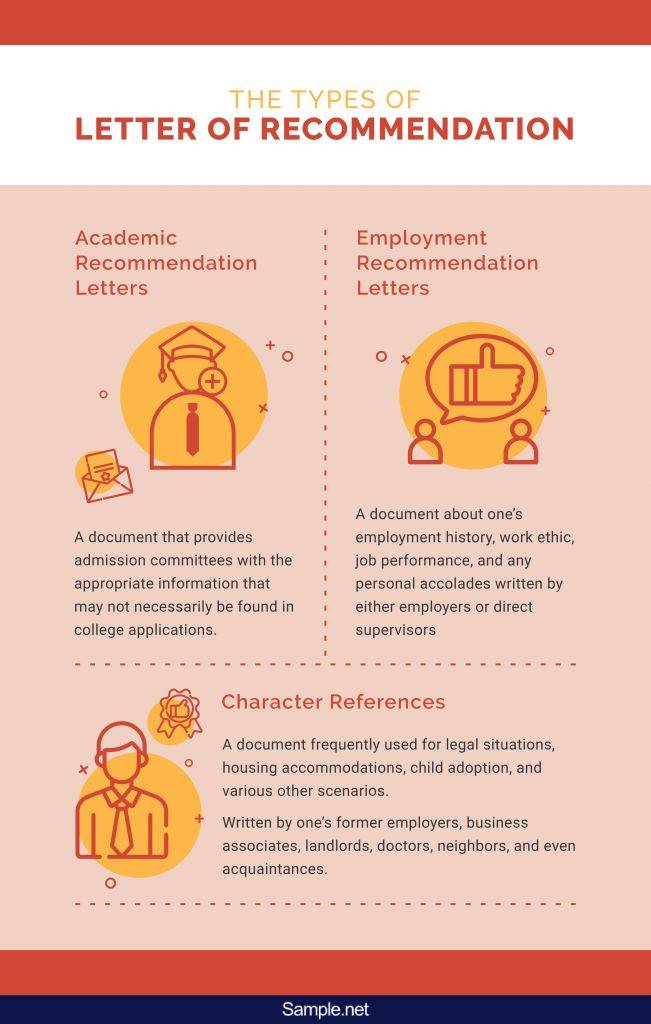
How to Make a Student Letter of Recommendation?
For those who have been tasked with writing a letter of recommendation for a former student, know that there are specific things to keep in mind. Below are the steps that you will need to take in order to successfully accomplish this endeavor in the best way possible.
Step 1: Review Letter Examples or Download Templates
If you have not written a letter of recommendation before, then it would be a wise move on your part to familiarize yourself with the layout. In order for you to do so, it can be as simple as either downloading a template or getting a sample letter for you to study. From there, you can decide on how you are going to go about writing the letter of recommendation.
Step 2: Write Down Your Contact Information
As someone trusted enough by the applicant to write the letter of recommendation, you are placed in a position of authority. Therefore, it would not be unlikely for others to look to you for help if ever they decide that they need more information on the student or if they have any follow up questions to ask. Be accessible to them by writing your contact information in the letter. Doing so will greatly aid the efforts of the student and it will also help prevent the occurrence of any future misunderstandings.
Step 3: Include Important Information about the Applicant
You will have already conducted your own talks with the student regarding what information to include in the letter of recommendation. Be sure to ask about the specific schools that the student is aiming to apply for, along with any details that might help him or her get accepted. Include information that is already in their sample CV or sample resume and expound upon it when the time is right so that you can successfully create a more targeted and personalized letter.
Step 4: Talk about the Applicant’s Strengths and Weaknesses in Detail
Now that you are more aware of what the layout of the letter is and what information you need to include, the next step is to be as descriptive as possible when it comes to the applicant’s strengths and weaknesses. Naturally, you would want to highlight the best and most relevant skills that will get the student accepted into their school of choice. However, that does not mean that you are to gloss over any weaknesses on their part. Transparency is going to but much appreciated, so don’t hesitate to talk about any areas that require improvement on the student’s part in order to set the proper expectations.
Step 5: Include Any Relevant Work Experience or Accomplishments
There will be more to an applicant’s credibility than just what went on in the four corners of the classroom. If the student has any work experience or if the two of you have worked in the same organization or company before, then be sure to mention it. Go into detail about how that experience has contributed to the student’s overall character development over the years. Also, mentioning any extracurricular achievements will never hurt anybody’s chances of getting into college or university, so be sure to mention those as well whenever possible.
Step 6: Conclude the Letter
When you come to the last part of the actual letter, dedicate one paragraph for your closing remarks. In this paragraph, be sure to write an offer to give even more information. Basically, this is where you can place your contact information. Besides that, you must also tidy up everything else that you have written about the student thus far in a neat fashion. Conclude by writing your name, any official title you may have, and then after it has been printed out, personally sign it with your signature.
Step 7: Proofread What Has Been Written So Far
The last step would be to simply check on what you have written so far to see if there are any errors that need to be corrected. This will not only include any typos or grammatical errors, but also any misinformation that might have been accidentally included. Double-check the facts and see to it that everything is accurate. Having any errors on the letter of recommendation is going to reflect not only on the student but also on the one writing it, so for the sake of credibility, re-read and be diligent with this final step. This last step rings true regardless of what kind of letter you have in mind, even sales letters and HR cover letters.
“Back in 1991, the University of Pennsylvania had a 47% acceptance rate, whereby contrast 2016’s rate came in at 12.3%.”
“For Princeton applicants to the class of 2022: total applicants are 35,370; total admits are 1,941; total enrolled are 1,346; admit rate is 5.5 percent.”
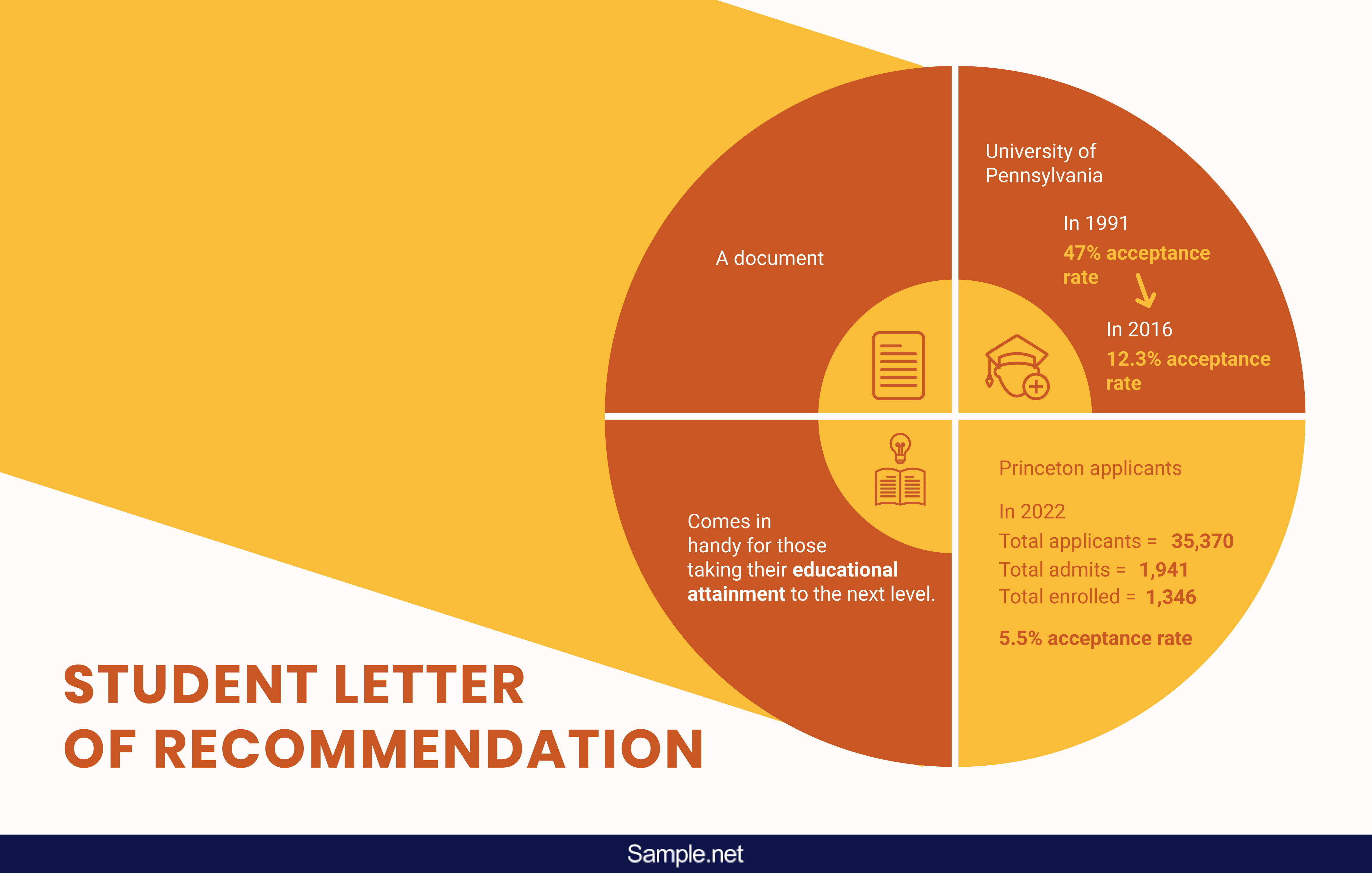
The Do’s and Don’ts of a Student Letter of Recommendation
Even those who have been writing letters of recommendation for their students for years will want to know what the many do’s and don’ts are. Simply put, these are the tips that anyone can put to good use for the improvement of their documents. Check them about one by one and see just how their application can make a vast difference.
Do’s
Do focus on a specific school.
When writing the letter of recommendation, do so with the intended destination in mind. Different schools will have different standards, so it is best to try and adapt appropriately. Do your best to focus on the skills that will better relate to the applicant’s overall capacity to succeed in a specific school.
Do collect the necessary information.
It is recommended to ask the student for a copy of his or her resume. In doing so, you can put yourself in a better position to speak about his or her personal experiences. If possible, you should try to meet with the applicant in person so you can conduct your own interview and gather as much necessary information as possible.
Do specifically mention how you know the applicant.
How do you know the student? Was he or she a student of one of your classes? Did you specifically mentor him or her? To make your letter all the more credible, you know to explicitly state the relationship between yourself and the applicant. If you are an employer rather than a professor or mentor, mention and explain the role played by the applicant in your organization along with how long the two of you have known one another.
Do include specific examples.
When trying to display where the student is strong and where he or she is weak when it comes to academics and other areas, it is best to come up with specific examples. Do not just state that the student is lacking in mathematics, for example, but has a strong predisposition towards history; talk about certain moments of failure for the latter whilst mention consistent displays of excellence for the former. This will paint a better picture and make the letter of recommendation a lot stronger.
Do avoid any clichés.
For the most part, do your best to avoid using clichés in your recommendation letter. Even if it is true that the subject of the letter is ‘diligent,’ ‘resourceful,’ and ‘hardworking,’ those are still words that many over-use. Instead, take the advice directly above this and include specific examples that demonstrate such attributes or characteristics. Don’t just tell; show them as well.
Do follow the guidelines for submission.
Different institutions will have different submission guidelines for recommendation letters. Be sure to make yourself aware of what those are for the school that your student is looking to apply to and adhere to them strictly. Failure to do so may result in your student’s overall failure to gain admittance into the school of their choice, which is a grave scenario for all involved. You may also see Letter of Recommendation
Don’ts
Don’t neglect to share your contact information.
You may think that you have successfully covered everything in your letter of recommendation, but there is still the possibility that others would like to contact you for any clarifications or for follow up questions. For that very purpose, it would be wise to include your contact information for the convenience of everybody involved.
Don’t reference characteristics that can serve as the basis of discrimination.
As helpful as you think it might be to make references to racial, gender, sexual orientation, political leanings, and other characteristics, know that doing so will open opportunities for potential discrimination down the line. Instead of focusing on any of those, be sure to instead look into their academic and work characteristics. Colleges would prefer to know how they’ve performed in their previous school and what accomplishments they have to their name as opposed to anything that is too personal and irrelevant to their admission.
Don’t go for any generalities or platitudes.
Being specific is one of the key points of writing a letter of recommendation. Your student is not just another face in the crowd, but a candidate for college application. By resorting to generalities, you undermine the value he or she can bring to the table. Rather than generalities, be as clear and specific as possible in order to highlight what the student has in the most effective way possible.
Don’t utilize vague or empty words when describing the applicant.
As someone tasked with writing a letter of recommendation for a student, you are likely working in the field of education and academia. Therefore, it would be beneath you to take the lazy route and utilize overly-used words such as ‘beautiful’ or ‘rewarding’ so nonchalantly. When you do find yourself using them, be sure to back it up. The future of your former pupil may depend on the quality of your letter.
Don’t hesitate to include mild criticism.
Just because you are writing a letter of recommendation, it does not mean that you need to shy away from any and all forms of criticism. The point is to paint a crystal clear picture of the applicant and that goes for whatever strengths and weaknesses they have. As glowing as it should be, it would only add to the transparency to include some mild criticism in the letter. This is sure to be a realistic take on the student and will help in setting the fairest expectations possible.
Don’t neglect to quantify the applicant’s rank or strength.
The general performance of the student can be used to help make a stronger case for their application at the college or university. As part of the letter of recommendation, it would be wise to include mentions of how the subject of the letter ranked in comparison to his or her classmates. This will provide a clear outlook on how well the student performed compared to his or her peers, along with where his or her academic strengths lie. You may also see Thank You Letter for Recommendation
How to Write a Good Recommendation Letter for a Student?
Writing a Letter of Recommendation for a student involves highlighting their strengths, achievements, and potential.
Steps to Write:
- Introduction: Start by introducing yourself and your relationship with the student.
- Student’s Qualifications: Describe the student’s academic and personal qualities.
- Specific Examples: Provide specific examples of the student’s accomplishments.
- Comparison: Compare the student with their peers to highlight their uniqueness.
- Conclusion: Summarize your recommendation and express confidence in the student’s abilities.
Whether it’s a Internship Letter of Recommendation or Medical School Letter of Recommendation these steps ensure a comprehensive and supportive letter.
How Would You Describe a Student in a Letter of Recommendation?
Describing a student in a Letter of Recommendation requires showcasing their character and achievements effectively.
Key Descriptions:
- Academic Performance: Mention their grades, course rigor, and academic achievements.
- Work Ethic: Highlight their dedication, perseverance, and ability to handle challenges.
- Personal Qualities: Describe traits like leadership, teamwork, and integrity.
- Extracurricular Involvement: Note their participation in clubs, sports, or other activities.
- Future Potential: Predict their success in future academic or professional endeavors.
These descriptions are crucial whether writing a Job Letter of Recommendation.
What Are the 6 Details That Should Be Included in a Letter of Recommendation?
Including specific details in a Letter of Recommendation ensures it is comprehensive and impactful.
Essential Details:
- Introduction of Recommender: Your name, position, and relationship to the student.
- Duration of Acquaintance: How long you have known the student and in what capacity.
- Student’s Achievements: Specific accomplishments and strengths.
- Personal Qualities: Character traits and interpersonal skills.
- Context of Accomplishments: Situations or projects where the student excelled.
- Final Endorsement: Strong statement of recommendation and confidence in their future success.
These details are important for all types of recommendations, from a Tenant (Landlord) Letter of Recommendation to a Recommendation Report.
What Not to Say in a Letter of Recommendation?
Avoiding certain pitfalls is crucial when writing a Letter of Recommendation.
Things to Avoid:
- Negative Comments: Do not mention any weaknesses or shortcomings.
- Vague Language: Avoid generalities; be specific and concrete.
- Irrelevant Information: Stick to relevant achievements and qualities.
- Over-Praising: Exaggeration can seem insincere.
- Unverified Claims: Do not include information you cannot personally attest to. This advice applies universally, whether crafting a Scholarship Letter of Recommendation
What Are the 5 Parts of a Recommendation Letter?
A well-structured Letter of Recommendation typically includes five key parts.
Key Parts:
- Salutation: Address the letter to a specific person or organization.
- Introduction: Introduce yourself and your relationship with the student.
- Body Paragraphs: Detail the student’s qualifications, achievements, and character.
- Comparison and Examples: Compare the student to peers and provide specific examples.
- Conclusion: Summarize your recommendation and offer a strong endorsement.
These parts are essential for any recommendation, from a Teacher Recommendation Letter
What Are 11 Impactful Words to Use in a Letter of Recommendation?
Using impactful words in a Letter of Recommendation enhances its effectiveness.
Impactful Words:
- Diligent: Describes consistent effort.
- Innovative: Shows creativity and originality.
- Resilient: Highlights perseverance.
- Proactive: Indicates initiative.
- Collaborative: Emphasizes teamwork skills.
- Articulate: Points out effective communication.
- Motivated: Shows strong internal drive.
- Adaptable: Indicates flexibility.
- Analytical: Highlights problem-solving skills.
- Reliable: Shows dependability.
- Enthusiastic: Indicates passion and energy.
These words can be used in various contexts, including a Law School Letter of Recommendation.
What Are Three Important Things to Mention in a Letter of Recommendation?
Highlighting key aspects ensures your Letter of Recommendation is compelling.
Important Aspects:
- Academic Excellence: Detail their academic achievements and intellectual abilities.
- Personal Character: Describe their integrity, empathy, and interpersonal skills.
- Future Potential: Predict their success and impact in future endeavors.
Mentioning these aspects strengthens any recommendation, from a Registered Nurse (RN) Letter of Recommendation
How to End a Recommendation Letter for a Student?
End an Internship Recommendation Letter by summarizing the student’s strengths, expressing confidence in their future, and offering to provide further information if needed.
What Are Positive Things to Say About Someone for a Reference?
In a College Letter of Recommendation, highlight qualities like reliability, teamwork, leadership, and academic excellence to paint a positive picture of the individual.
What Makes a Reference Stand Out?
A Fraternity Letter of Recommendation stands out by providing specific examples of achievements, showcasing unique qualities, and demonstrating a genuine connection between the recommender and the student.
What Are Useful Phrases in Recommendation Letter?
Useful phrases in a Personal Letter of Recommendation include “outstanding performance,” “exceptional dedication,” “remarkable skills,” “highly recommend,” and “great potential.”
How Long Should a Recommendation Letter Be?
A Paralegal Letter of Recommendation should be one to two pages long, providing enough detail to be informative but concise enough to maintain the reader’s interest.
What Are Key Points in a Letter of Recommendation?
Key points in a Physician Assistant Letter of Recommendation include the recommender’s relationship with the student, the student’s achievements, personal qualities, and a strong endorsement.
How to Structure a Letter of Recommendation?
Structure a Letter of Recommendation for Graduate School with an introduction, detailed body paragraphs highlighting achievements and character, and a concluding endorsement.
In conclusion, a well-crafted Student Letter of Recommendation can significantly impact a student’s future opportunities. Our article provides detailed sample, forms, letters, use to guide you through creating a strong recommendation. Whether you’re endorsing a student for college, scholarships, or jobs, our comprehensive resources ensure your recommendation letter effectively highlights their strengths and potential. A thoughtful and well-structured recommendation letter serves as a valuable Letter of Support that can open doors for your student and set them on a path to success.
